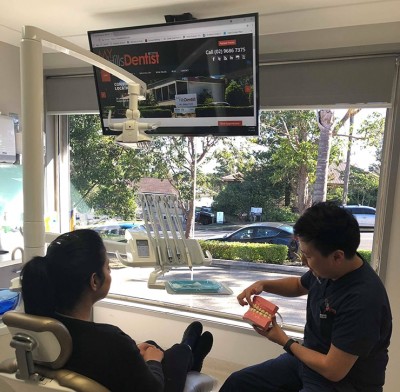For many years, there has been a powerful stigma attached to any kind of psychological therapy. It was believed that this solution was only appropriate for people with serious mental health issues. Therefore, anyone who was seeking therapy must have problems, so people were reluctant to get therapy, and, when they did, they were reluctant to reveal that they were getting it.
However, as with dentistry and other health disciplines, psychotherapy has modernised tremendously in recent decades, leading, among other things, to more targeted treatments that can help people with everyday problems to improve a person’s overall quality of life with minor interventions.
And, it turns out, one of the things that it can achieve is improving people’s oral hygiene routines. A new study shows that young adults with oral health problems can improve their oral hygiene routine with a brief course of targeted cognitive behavioral therapy.
Acceptance and Commitment to Oral Hygiene
 For this study, researchers in Sweden recruited 135 young adults (age 18-25) who had at least two cavities. The subjects were randomly assigned to one of two groups: 67 received acceptance and commitment therapy (ACT) and 68 were given standard information about dental disease, the control group.
For this study, researchers in Sweden recruited 135 young adults (age 18-25) who had at least two cavities. The subjects were randomly assigned to one of two groups: 67 received acceptance and commitment therapy (ACT) and 68 were given standard information about dental disease, the control group.
Although subjects were required to have a minimum of two cavities to participate, the actual number of cavities was much higher, with an average of 6.3 cavities per person in the treatment group, and 4.9 cavities per person in the control group. And in subjective reports, more than 80% in each group said they had poor oral health.
At the beginning of the study, only 57% of the ACT group brushed their teeth at least twice a day, compared to 66% of the control group. At the end of the study, 78% of the ACT group were brushing their teeth at least twice a day, compared to 72% of the control group.
But this wasn’t the only positive impact of ACT. Over the course of the study, all monitored oral health behaviors improved in the ACT group, including flossing, use of toothpicks, and additional fluoride use.
For the control group, only flossing and additional fluoride had significant improvement.
If You Have Poor Oral Health in Sydney
If you are in Sydney and have poor oral health, it’s important to get help to improve. Poor oral health can have many serious impacts on your quality of life, including reducing your overall health, increasing your healthcare costs, reducing your ability to find employment, and reducing your lifetime earnings.
Given the importance of good oral health, it’s important to get whatever level of help is necessary to improve your oral health. The best place to start is to find a dentist who really cares about you and is prepared to take proactive steps to help you improve your oral health. If your current dentist is content to simply treat problems as they arise, it might be time to look for a new dentist.
If you are looking for a Sydney area dentist who truly wants to help you achieve your best possible oral health, please call (02) 9686 7375 today for an appointment at My Hills Dentist in Baulkham Hills.

